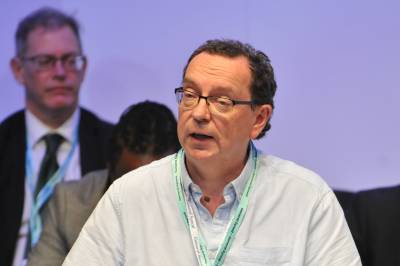07/12/2023
Reporting abuse and finding support
Readers may find some of the content upsetting. If you need access to support, please contact the Safe Spaces helpline by calling 0300 303 1056 or by visiting this Church of England webpage, where external support services are listed, including listening, advice, and counselling services.
By an anonymous member of the Redress Survivor Working Group
As a survivor of clergy rape and spiritual abuse, to me, redress represents an opportunity to seek a measure of restorative justice and reparation, when the formal processes of both Church and State have failed to provide that for me. This recognises both the particular impact of faith-based abuse, and that the harm is not just done to me, but to the whole Body of Christ. We are all injured by the trauma from the abuse, so we all need to be involved in the repair.
Church-related abuse is a betrayal of trust causing moral, spiritual and psychological injury, as well as the harm from the abuse itself. It ruptures the relationship we have with our faith community and with God. As Judith Herman says in her book, Truth and Repair: How Trauma Survivors Envision Justice, “If trauma originates in a fundamental injustice, the full healing must require repair through some measure of justice from the larger community.”
Repentance without action to repair the damage caused, is just empty words. I’ve heard a lot of those as an abuse survivor. As survivors, we need the Church to meet us with belief, acknowledgement, apology and support to rebuild our shattered lives. Redress is so much more than throwing money at survivors and hoping they will go away.
What does good redress look like?
We’ve spoken a lot about this in the Redress Scheme Survivor Working Group. I’ve also drawn on the responses to the initial redress Scheme Survey, conversations with other survivors I speak with through my work, and the findings of the work of IICSA on accountability, reparations and redress.
Although we all want different things from redress, depending on our individual needs, perspectives and situations, there are a number of things on which many survivors are agreed:
- The Redress Scheme should be generous, timely, and non-combative. The process must be survivor-centred, treating us with humanity and compassion, providing independent advocacy and support.
- Non-financial redress is equally important to many survivors, including Church-wide initiatives such as a public apology, or tangible memorial, as well as individual redress.
- Person-centred redress should offer survivors a range of options. These might include a personal apology and funding for therapy, among other restorative approaches.
- Many survivors have said they also want to know there are lessons learned and that clear improvements in practice are being implemented.
The Survivor Working Group, together with the Project Team and the Project Board, are continuing to explore what forms of redress, other than financial, could be offered as part of the National Redress Scheme.

"I believe the Redress Scheme can offer some kind of peace, as an act of repentance that attempts to put some things right."
What does redress mean to me?
To me, redress represents so much more than any tangible support delivered by the Redress Scheme.
It represents Freedom: My abusers slowly destroyed my soul, telling me what they did is what God wanted for me. Redress can bring freedom from trauma, through demonstrating that was not God’s desire.
It represents Hope: the Church response to my disclosures made me feel like I don't matter, what happened to me doesn't matter and I spent much of my life believing that, after all, I didn't matter to God. Redress can bring me hope of knowing perhaps the Church does care, perhaps I can find healing.
It represents Justice: trauma ruptured my relationship with my faith community; the moral injury is a wound we all carry and the Church needs to find a ways of offering justice and restoration, not just for survivors, but the wider Body of Christ.
It represents Peace: trauma haunts me every day and the battles with Church and State systems leave me on edge and dysregulated. I don’t like the word ‘closure’ because we can’t just write abuse and trauma out of our lives, so it never truly ends. Still I believe the Redress Scheme can offer some kind of peace, as an act of repentance that attempts to put some things right.
Despite everything, I still have faith in God, who can help us to live up to our part of the covenant, to act justly, love mercy and walk humbly with our God. This is the gospel that I believe in: the commitment to do whatever it takes to repair the rupture and wounds from abuse. For isn't that our mission, to restore our broken relationship with God and each other? So isn't this work where the Church should be leading the way?
So I am hoping and working for an ambitious Redress Scheme that is generous, inclusive, survivor-centred, and provides a lasting legacy that can contribute to cultural change and offer survivors life in all its fullness.


